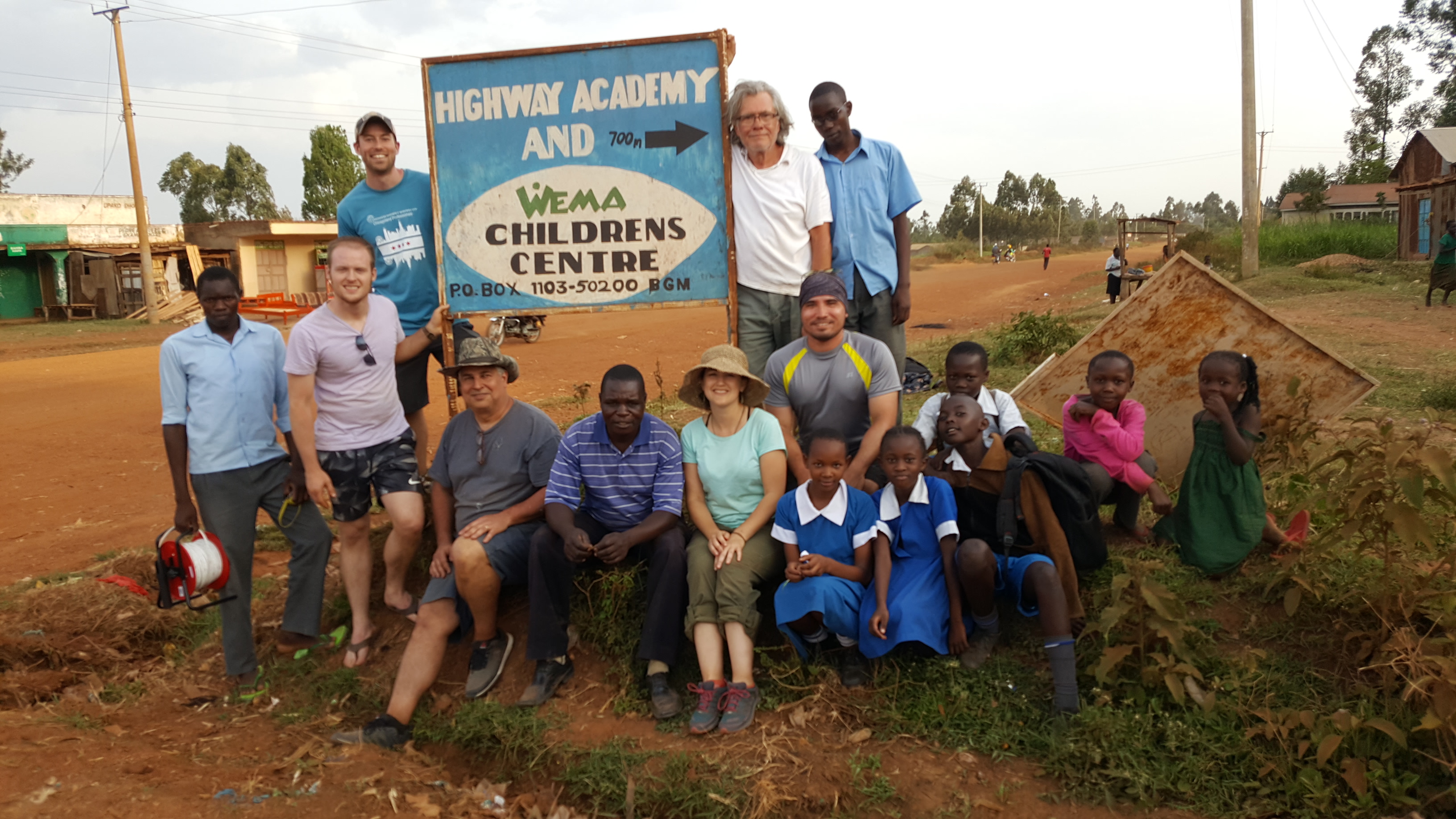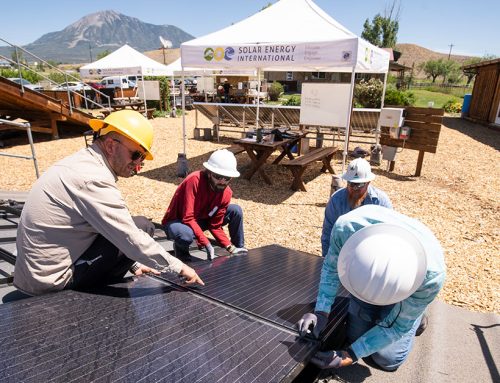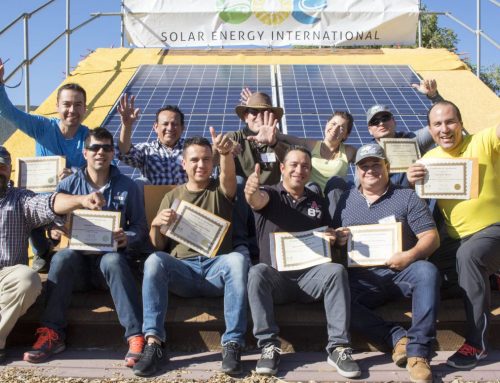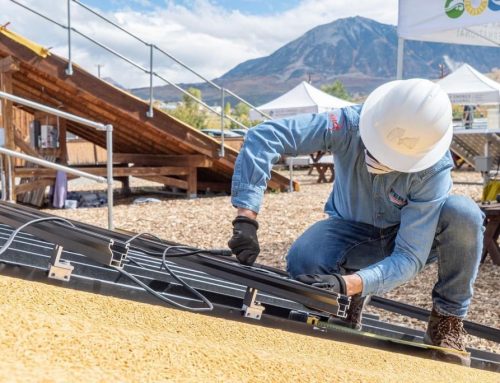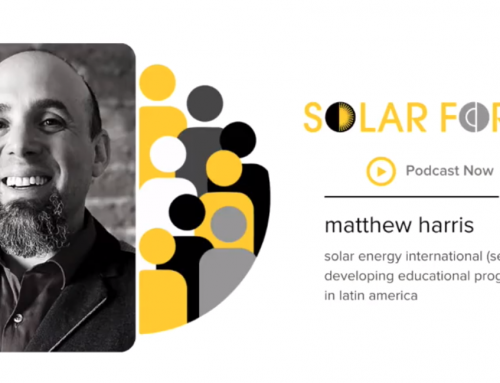Karo Fernandez, SEI Curriculum Developer and Technical Instructor, traveled to the Wema Children’s Centre in Bukembe, Kenya volunteering for Engineers Without Borders Chicagoland Professional Chapter to support improvement efforts for the electrical and water pumping systems. This included solar site assessment and power calculations to shift the existing electrical water pump, currently not operating due to grid failure, to a solar powered system. Additionally, she assessed the site and performed a detailed load analysis with Jorge Marquez, another volunteer, for other potential solar energy back-up systems.
Solar Energy International (SEI), in support of their mission, donated equipment for Karo to take advantage of the opportunity to teach children and young adults about solar energy.
SEI donated a “small charge controller lab” which included a PV module, a SunSaver-10 charge controller, an AGM battery, and several 12 V DC light bulbs.
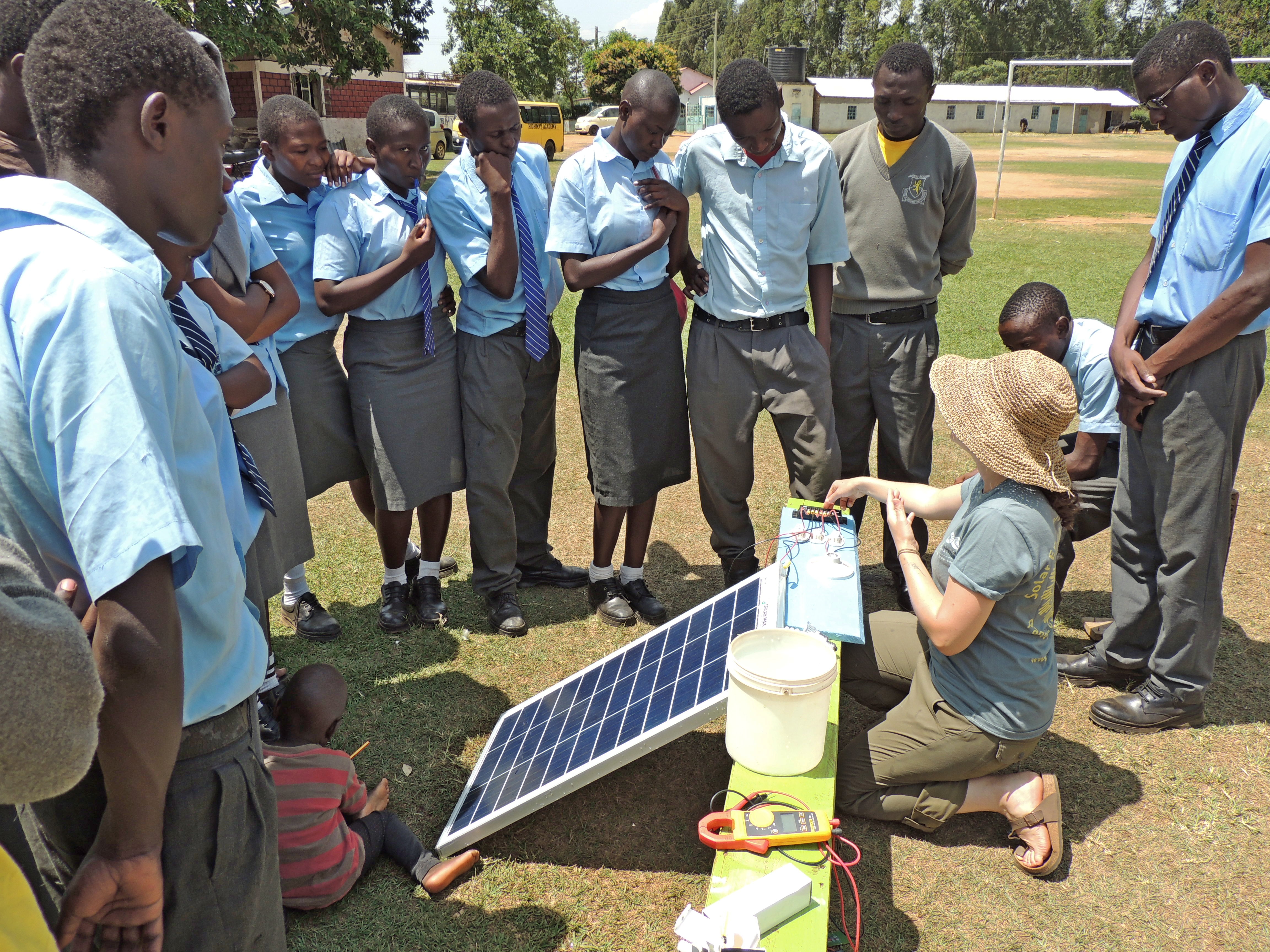
Karo Fernández foraged through the town of Bungoma for solar panels and batteries to complete SEI´s labs with locally purchased equipment.
This lab teaches how a simple off-grid PV system operates, including understanding how current flows and how energy consumption can be measured. It also compares energy consumption of different lighting technologies (LED, CFL and incandescent) to evaluate which one is most efficient.
SEI also donated a “Pump-in-bucket lab” to teach about the simplicity and advantages of PV-direct water pumping systems. A PV direct system for the school´s existing pump could solve their main water availability issues.
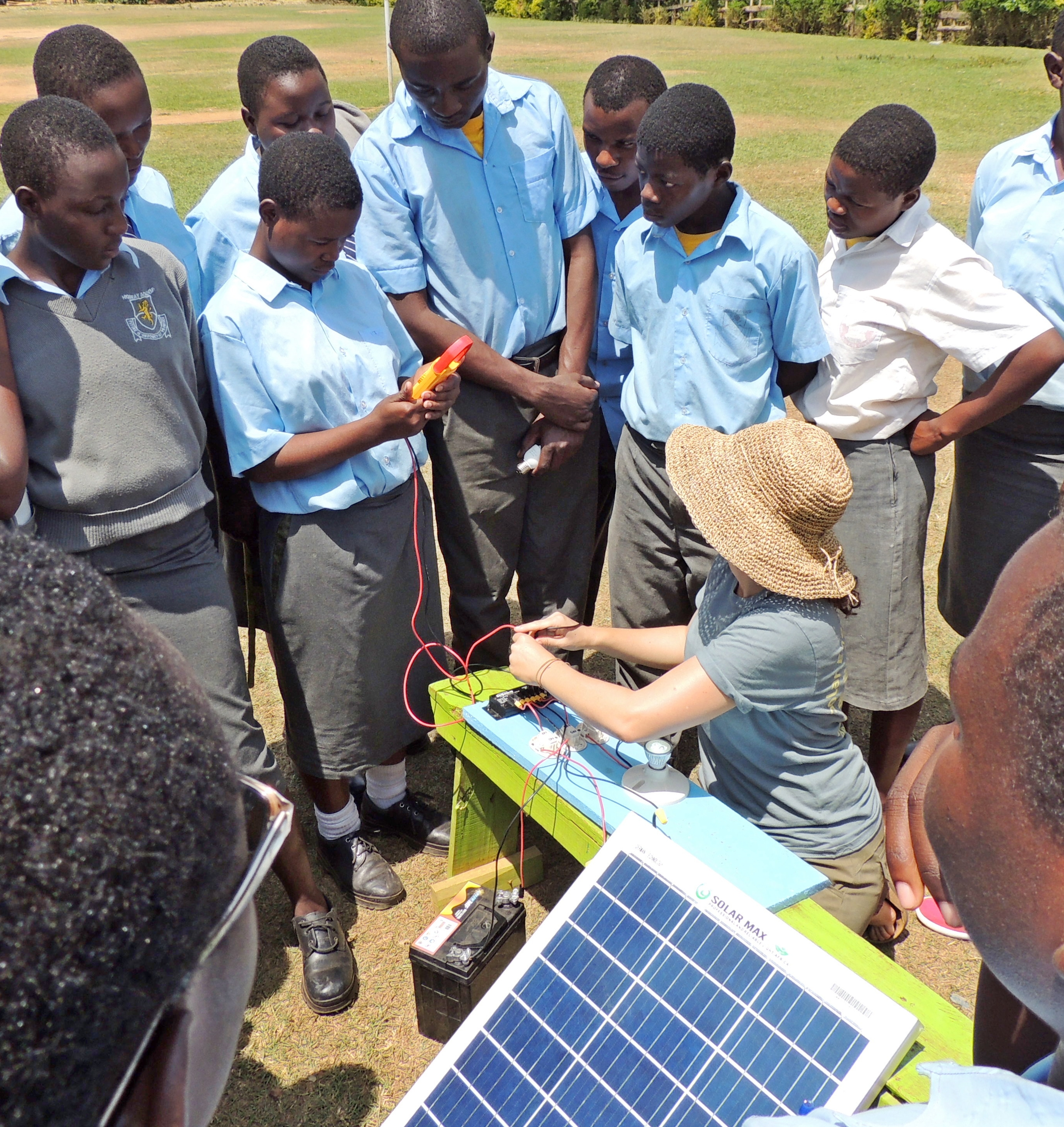
Students made their own way through current and voltage measurements to understand how a small off-grid PV system operates.
Karo commented about the experience:
“The SEI labs we taught were eye-opening to these young adults. Showing them that pumping water with the sun is not only possible, but also simple and reliable brought along many aha! moments. We left the SEI labs set up and ready to use, with the commitment from the young adults at Highway Academy to use them and teach the younger kids about solar energy. I hope these little bits of information we share multiply. Kids at Highway Academy are highly educated, many understanding basics of electricity and power. Most are locals, and I wish I am able to return and provide more training so they can bring light and water to their homes and communities.”
The location
Wema Children’s Centre and Highway Academy are an orphanage and boarding school in Bukembe Village, Western Kenya run by Teresa Wati and Stephen Juma. They invested much of their wealth to establish Wema Children’s Centre and to this day, they are responsible for the education and well-being of over 500 school children. Engineers Without Borders (EWB) Chicagoland Professional Chapter became involved in 2016, since then the team has designed and overseen the construction of a water treatment system for their borehole.
Team Wema Work
The Wema Team traveled in April 2019 to assess and advance all active projects at the site and meet with local contractors to discuss how to proceed with the solar, water, and bathroom projects. The team also constructed a pilot rainwater catchment system with the community, which will be used to evaluate the amount of water captured, the quality of the water, and the overall community use of the water and satisfaction of the catchment.
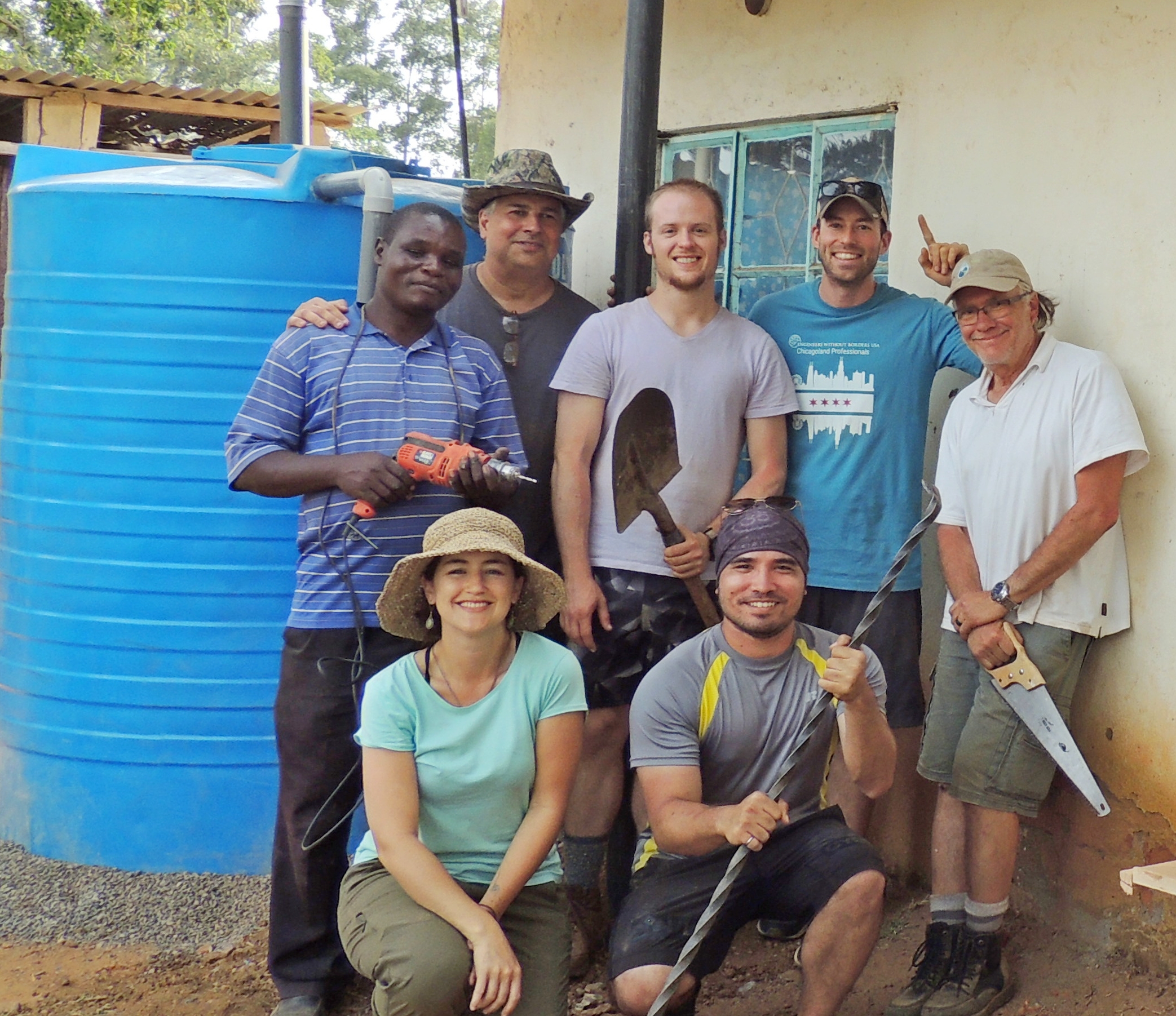
Wema Team 2019: Lawrence, Jorge Márquez, Will Vierling, Joe Harrington, Stephen Collins, Karo Fernández and Alan Phelps.
“We lived at Wema for 10 days, and not once did we have reliable running water because the grid was down. The infrastructure is there, but the utility is negligent to solve a few issues that could provide running water to Wema and many members of this beautiful community. Knowing we can power their pump with solar made me want to get it done right away!”, Karo said.
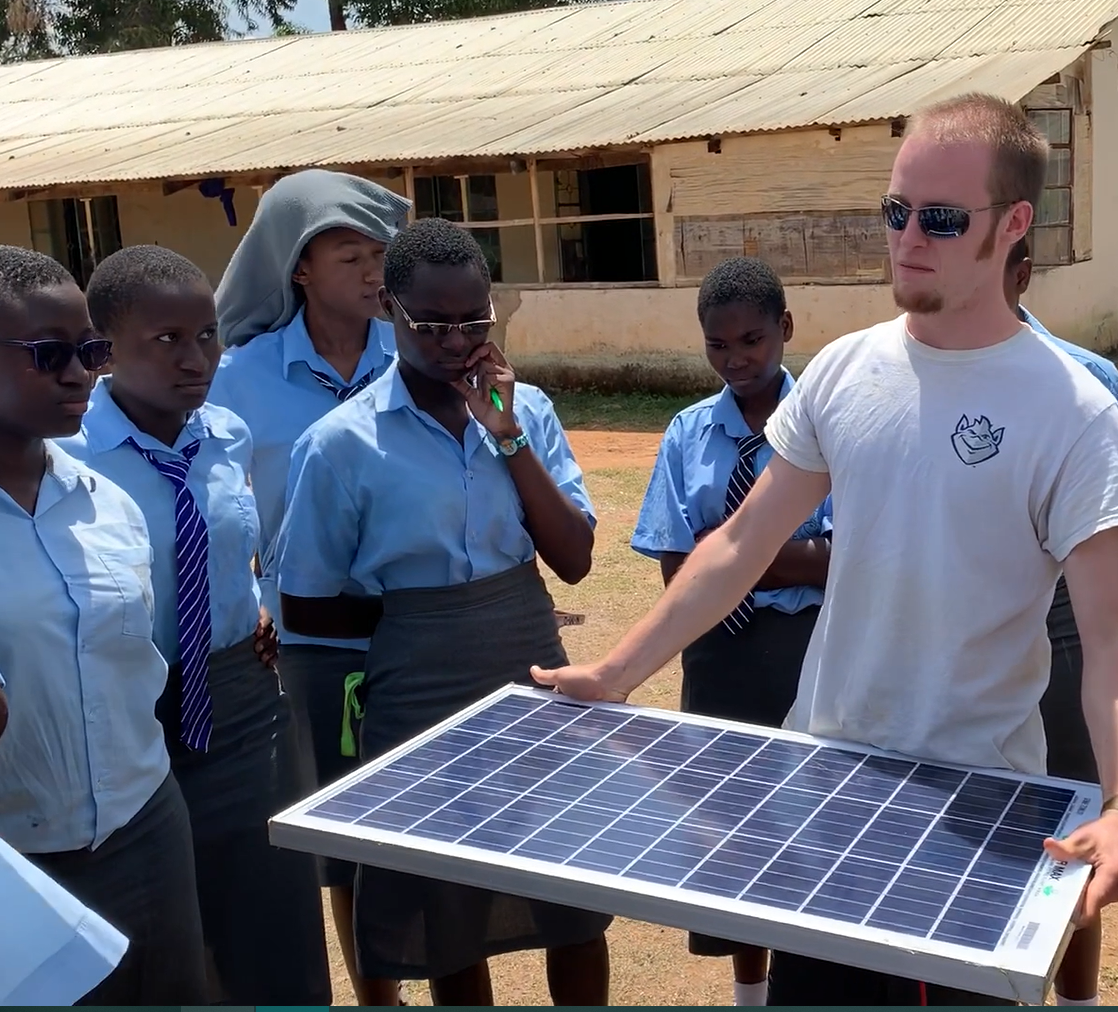
EWB volunteer Will Vierling got involved in SEI´s labs to explain the solar principle and basic hydraulics to students with the pump-in-a-bucket lab.
What’s coming
After the April 2019 assessment, EWB Chicagoland is set for Summer and Fall of 2019 to be primarily tasked with the study and design of water system expansion and solar power final designs for phase 1 implementation in 2020. Prior to the completion of this work, the team is looking to produce a final design for the urgent new bathroom project which will be followed by a remote implementation in Summer/Fall 2019. Fundraising is essential and ongoing efforts must be stepped up to ensure the timely delivery of these projects.
“Grateful to the moon for the opportunity to volunteer for Engineers Without Borders in Kenya, and promote S.E.I.´s mission of a world powered by renewables”, Karo concluded.

